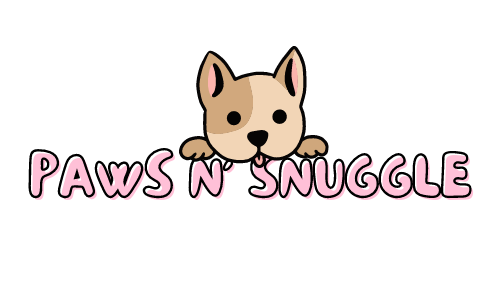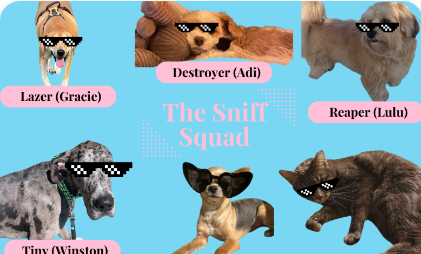Paws N' Snuggle, LLC

TIPS & TRICKS
Managing Pet Anxiety: Calming Tips for Stressed Cats and Dogs
POSTED ON JANUARY 30, 2024
Our furry friends can experience stress, fear and anxiety just like humans. Anxiety in pets may be caused by loud noises, separation from owners, travel, or changes in routine. Anxious behaviors like pacing, trembling, inappropriate urination, aggression, and destructive acts can be frustrating and worrying for pet owners. The good news is there are effective ways to help calm an anxious pet. Here are some tips:
Create a Safe Space: Designate a quiet, comfortable area your pet can retreat to when feeling stressed. Outfit it with familiar comforting items like bedding, toys, and worn clothing with your scent. Cats benefit from high perches and enclosed spaces, while dogs may prefer crate training.
Introduce Changes Gradually: Gradual exposure to new places, people, pets and experiences will help reduce anxiety. Ease your pet into changes like boarding, vet visits, new homes, and additions of other pets over a period of days or weeks. Use favorite treats and play to associate positive feelings with the new situation.
Try Calming Products: Pheromone diffusers, calming sprays, and supplements can help take the edge off. Adaptil for dogs and Feliway for cats are synthetic pheromone products that promote relaxation. An Anxiety Wrap applies gentle pressure to soothe dogs. Calming chews like Zylkene contain supplements shown to reduce stress. Talk to your vet about appropriate options.
Teach Relaxation Commands: Use cues like “relax” or “settle” to train your pet to calm themselves on command. Pair the words with rewards in mellow settings, then increase distractions. Practicing these commands daily when your pet is already calm will build the association.
Ensure Plenty of Exercise and Play: A tired pet is a calm pet. Make sure your cat or dog gets sufficient physical and mental stimulation through walks, fetch, puzzles with treats, and free play each day. This helps dissipate pent-up nervous energy.
Use Distractions: Redirect anxious behavior by engaging your pet's attention with a fun distraction. Offer a puzzle toy stuffed with treats when you leave, turn on a TV show for background noise, or initiate playtime. Food puzzles and interactive toys are great for occupying pets.
Remain Calm: Yourself Animals are very in-tune to human emotions through cues like body language, tone of voice, and pheromones. If you get tense or anxious, your pet will pick up on this and mirror the state. Stay relaxed, speak in a soothing voice, and model calm behaviors.
Consult Your Veterinarian: If your pet's anxiety is severe and persists, consult your vet. They can assess if an underlying health issue is contributing and provide medications, supplements or referral to an animal behavior specialist for additional support.
With patience and consistent management using techniques like these, you can help your furry friend feel more at ease and overcome their anxious behaviors. Don't hesitate to enlist the guidance of professionals to ensure your pet's wellbeing.
JOIN "OUR PAWS FOR THOUGHT" NEWSLETTER
We will make it rain cats and dogs in your inbox twice a month with care & training tips for your fuzzy friends, we will also highlight pet-friendly events, businesses and parks in the St. Pete/Tampa Bay area.
ABOUT
LOCATION
Madeira Beach
FL, 33708
Bay Pines
© Copyright Paws n' Snuggle, LLC. All Rights Reserved

© Copyright Paws n' Snuggle, LLC. All Rights Reserved

